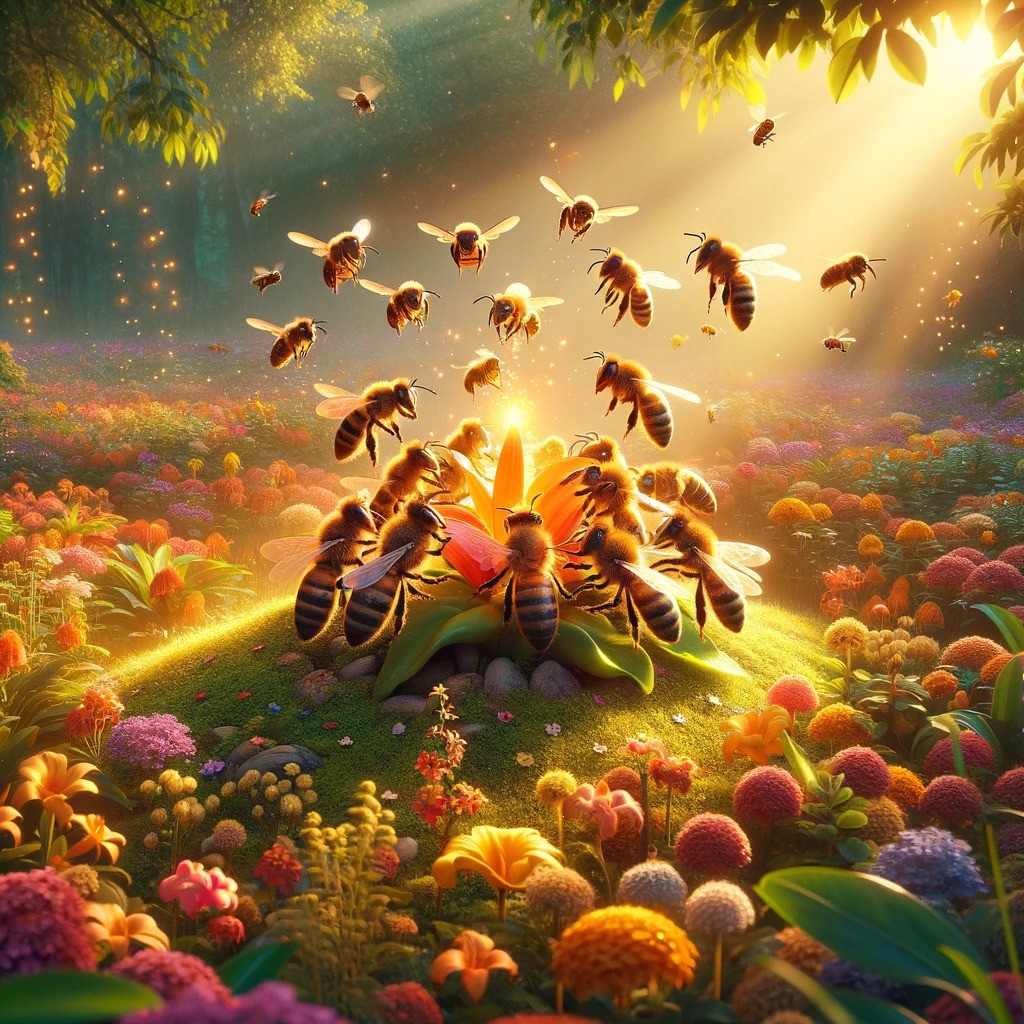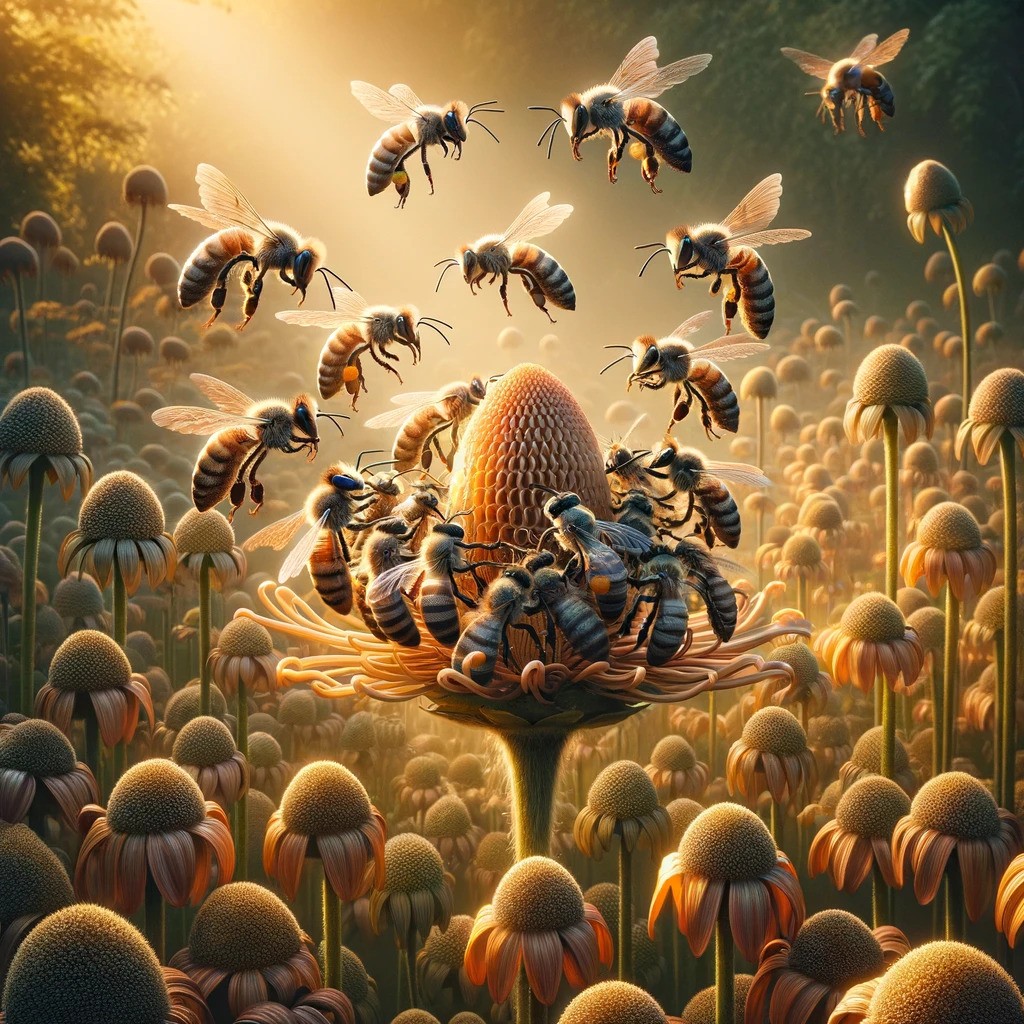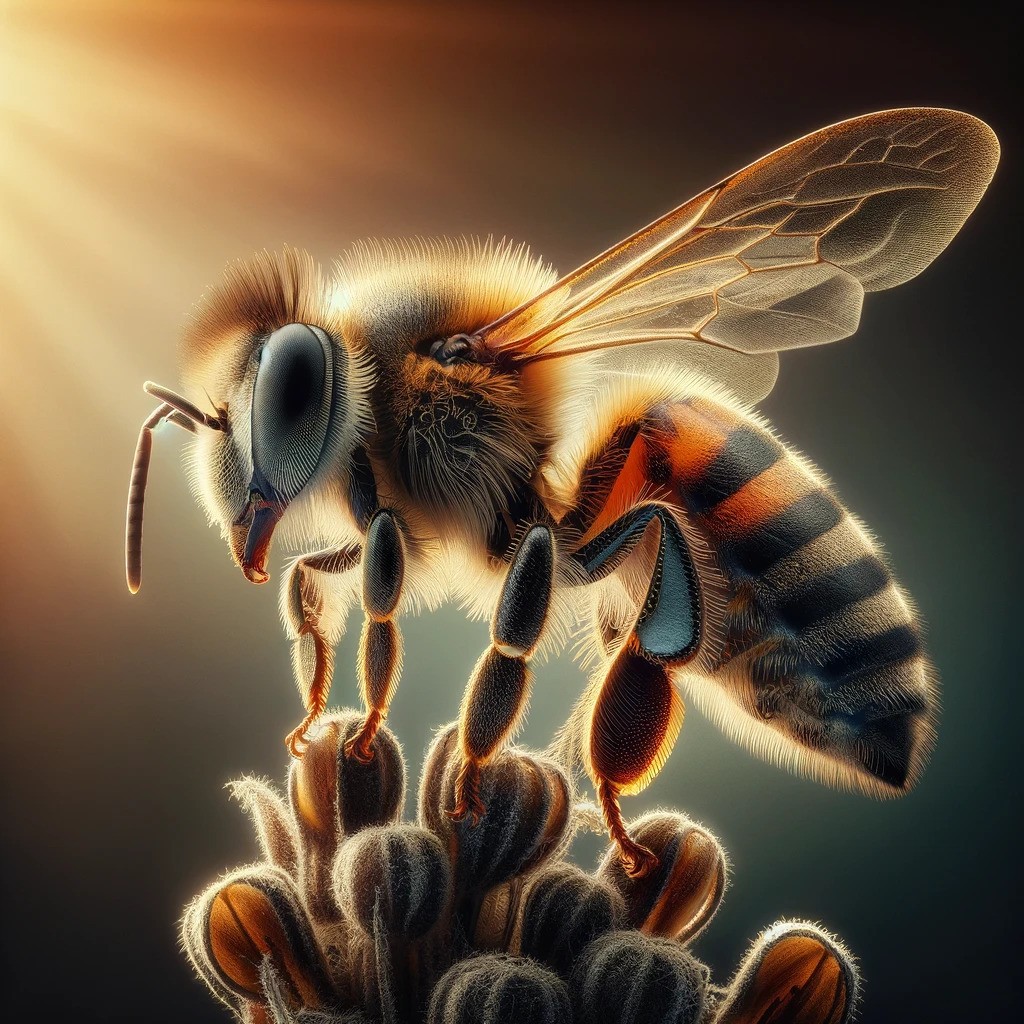Mid-autumn can be a tricky time for stimulating your bees, but with the right approach, you can avoid common problems like robbing bees and wasp attacks.
The best way to avoid these unpleasant events is to provide small, frequent feedings at dusk when both bees and wasps are less active.
Why Dusk Is the Best Time for Autumn Stimulation
Lower Activity Levels: Bees and wasps are less active during the cooler, dimmer parts of the day.
By stimulating the hive at dusk, you reduce the risk of attracting unwanted attention from robbing bees or wasps.
Safer Feeding Conditions: Stimulating the hive during daylight hours can draw in aggressive robbing bees from nearby colonies, as well as wasps looking for an easy target.
By the time dusk arrives, most of these potential threats have settled down for the night, making it safer for your hive to receive small quantities of feed.
Prevent Overfeeding: Large feedings can attract unwanted attention from other colonies or pests.
Small, frequent amounts ensure the bees get what they need without overloading the hive and creating conditions that invite robbers or wasps.
By providing 150ml or so of sugar syrup every 2-3 days you’ll give them time to process it before the next day.
The Dangers of Robbing Bees and Wasps
Robbing Bees: When nectar becomes scarce in mid-autumn, bees from other colonies may start robbing weaker hives to steal their stored food.
Robbing bees can overwhelm a hive, leading to fights and a stressed colony.
Once robbing begins, it can be very difficult to stop, and it can result in the collapse of the hive being robbed.
Wasp Attacks: Wasps are opportunistic predators and will take advantage of weakened or distracted hives.
A hive being stimulated during the day may become a target for wasps, which can enter the hive, steal food, or attack bees and brood.
The Benefits of Proper Mid-Autumn Stimulation
Healthy Brood Population: By stimulating your bees in small quantities and at the right time, you’ll ensure they continue to raise brood and maintain a strong colony going into winter.
Reduced Stress on the Hive: Feeding in a controlled and safe manner keeps your bees focused on preparing for winter instead of defending themselves from robbers or wasps.
Increased Winter Survival: A well-stimulated colony with a strong population and plenty of food stores is far more likely to survive the winter and thrive in the spring.














